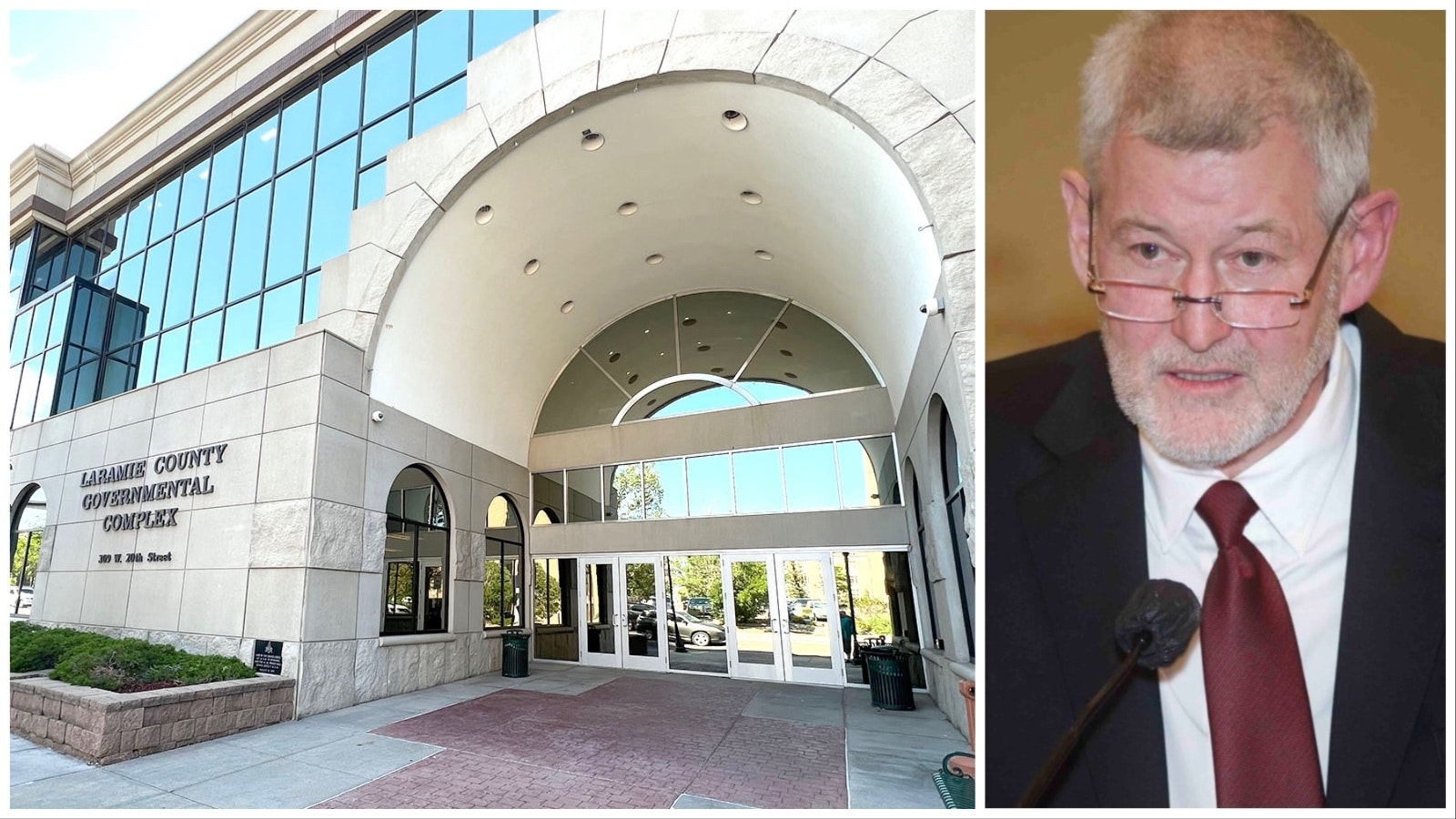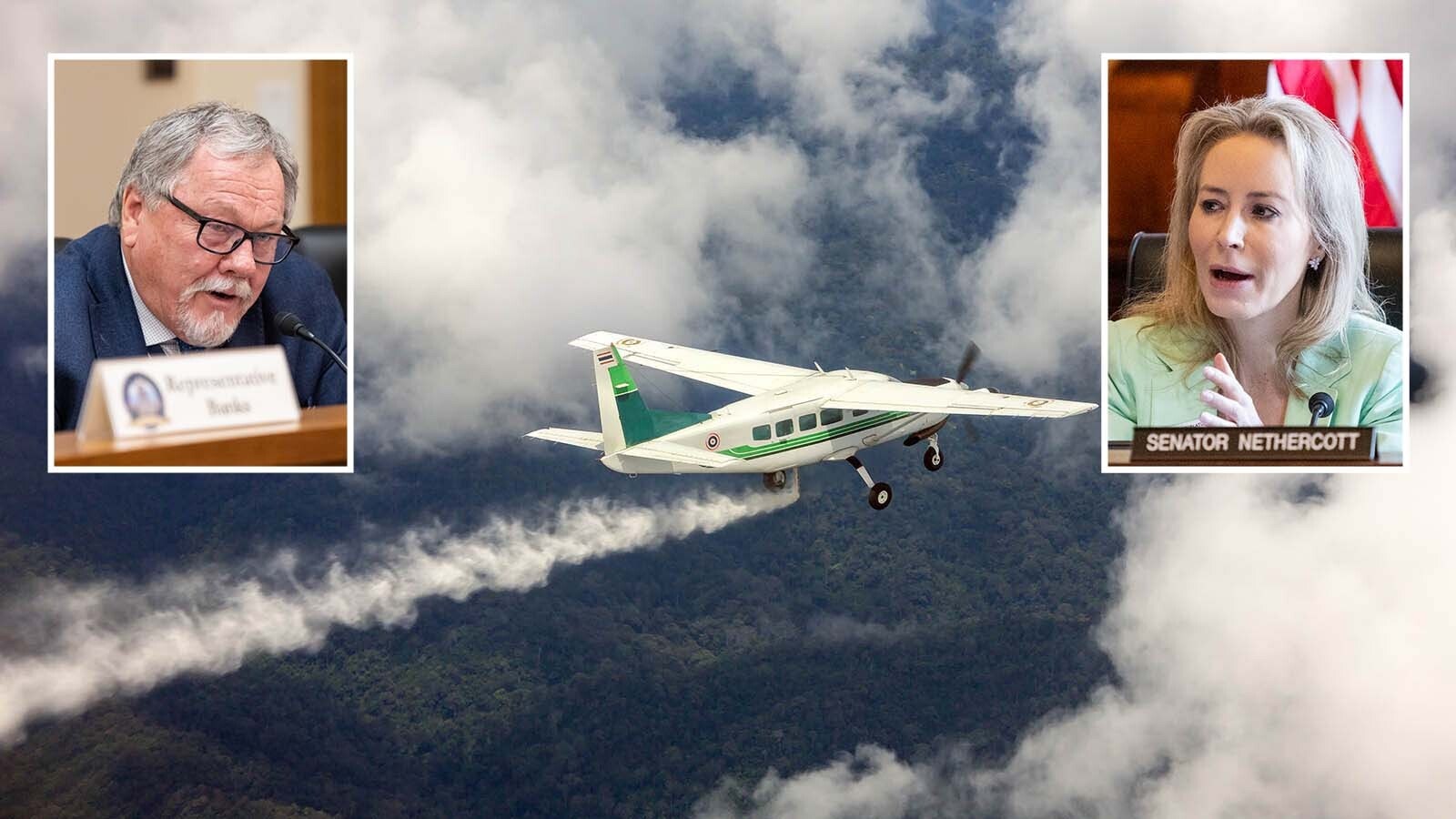CHEYENNE — A case moving through Laramie County District Court could hold serious consequences for how much effort public agencies in Wyoming need to make to comply with public records requests.
Laramie County Judge Steven Sharpe said in a hearing Wednesday afternoon that there were acts of “bad faith” on the part of the Wyoming Department of Education to not comply with public records requests made about a “Stop the Sexualization of Our Children” press conference held in 2022.
The “sexualization” event was hosted by former Superintendent of Public Instruction Brian Schroeder, who is accused in the lawsuit of lying about public money being used toward holding the political event. Schroeder appeared virtually during Wednesday’s hearing as he now lives in Arizona.
This event had originally been planned to be hosted in a state government building but was moved to the Little America Resort in Cheyenne when criticism started surfacing about the location.
Sharpe quoted an affidavit submitted by Laramie attorney Rodger McDaniel who said, “Public records are meaningless if public employees don’t take their responsibilities seriously” and that lawsuits shouldn’t have to be filed to receive legal public information.
“Sadly, I think there’s some merit to that,” Sharpe said.
The Case
Cheyenne attorney George Powers, McDaniel and media were initially told by members of the education department and Schroeder that the event had been privately funded.
The state handed over minimal communications about the event in an initial public records request. It was later revealed in follow-up record requests that the state had withheld information.
Through later public records requests, it also was discovered that the event had been publicly funded initially, but with the intention of being reimbursed by private donors. No evidence has been provided to show a full reimbursement happened.
Without reimbursement, the total cost of the event amounted to less than $500. Whether the state had the right to use public money to pay for the event is not an issue of the lawsuit.
Powers and McDaniel said the state misrepresented facts and rejected access to public documents in their records requests. There were also alleged inconsistent statements made by state employees in their searches for documents.
Was It Purposeful?
Senior Assistant Attorney General Mackenzie Williams said Wednesday that the state admits it erred by failing to provide records within the legally required 30-day limit, but does not admit that it purposely withheld information.
A central piece to the case will be determining if there was a purposeful intent to withhold information on the part of the state and if documents were improperly held back.
“The issue is not whether any documents exist, but rather was the search for records adequate,” Sharpe said.
Although Schroeder declined requests to have his personal cell phone inspected as part of the public record requests, he later said he had turned over all relevant information anyway.
What’s Next?
Sharpe decided the next step in this case will be an evidentiary hearing. Here, members of the Department of Education, Schroeder and other witnesses will be questioned about their involvement in the public records request and will aim to prove they didn’t purposely conceal documents.
Powers had requested discovery of all documents related to this case, a motion Williams strongly opposed. Sharpe rejected Powers’ request and opted for the more narrowly tailored evidentiary hearing forum.
“If the defendants believe they haven’t been provided all the relevant public records, a solution would be to hold an evidentiary hearing,” Williams said.
Sharpe could still grant discovery after this hearing.
Powers told Cowboy State Daily he still believes the state is withholding documents such as information on the state money that was used to originally finance the “sexualization” event and where its money comes from.
Ramifications
Powers said the public should care about this case as it relates to the government’s duty to serve the legal rights of residents. He said if left unchecked, an agency can purposely withhold information.
“It’s a big case of how a public agency goes about and how much effort it puts into its searches,” Powers said.
Although Powers and McDaniel are seeking damages in the case, they are largely symbolic with a maximum penalty of $750 the strictest legal recourse Sharpe could find against the defendants, a topic the judge described as “intriguing.”
The larger impact, Powers said, will be establishing a legal precedent in Wyoming case law to show that public agencies must perform a legitimate amount of effort to comply with public records requests.
Leo Wolfson can be reached at leo@cowboystatedaily.com.





